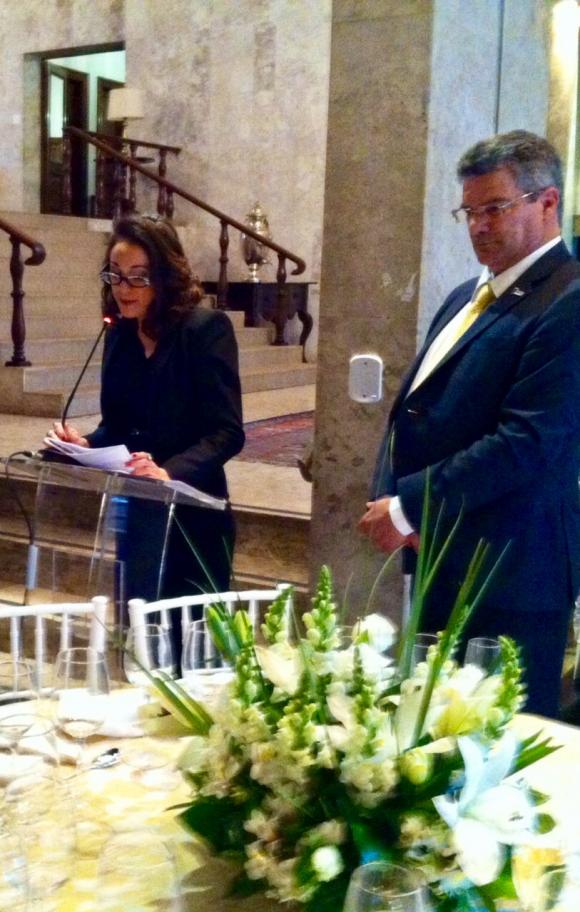
Cristina de Hollanda Sheldrick '17 receives her prize in Brazil in December 2016.
Cristina de Hollanda Sheldrick ’17 used her knowledge of intellectual property law to compare laws in the United States to the Intellectual Property Law Statute in Brazil.
Her article “The Legal Protection of Scientific Data Submitted to Governmental Agencies” won her the 2016 Carlos Henrique de Carvalho Fróes Prize, from the Brazilian Intellectual Property Agents Association (“ABAPI”) in association with The Brazilian Intellectual Property Lawyers Association (“ABPI”).
Sheldrick received the award at a ceremony on the 15th of December in São Paulo, Brazil.
In her acceptance speech Sheldrick said: “I feel profoundly honored by this recognition, because the prize’s topic this year was the Celebration of Twenty Years of the Brazilian Intellectual Property statute, which was enacted, coincidently, on the same date on which I started my professional career”.
Sheldrick, who is of Brazilian heritage and has dual citizenship, competed against other leading practitioners in a contest for the best written contribution on intellectual property law, sponsored by the two Brazilian associations.
“The focus of the paper was the legal protection of pharmaceutical scientific data submitted to governmental agencies (such as the FDA, in the U.S.); it compares the legal treatment afforded to scientific data under the U.S. law and the Brazilian law,” she said.
Her paper was blind peer reviewed by two Brazilian federal magistrates and two members of ABAPI and ABPI.
The paper concludes that the exclusive rights conferred over scientific pharmaceutical and clinical data provide a crucial commercial advantage over competitors in the U.S., where the law strikes a balance by providing for mandatory data disclosure in exchange for market exclusivity. However, Brazil, the fifth largest market for drug companies, does not provide such exclusivity rights and the protection of scientific data therefore still largely depends on trade secret law in that country. Thus, in the absence of harmonized rules at the international level, companies trading globally must be mindful of local differences in applicable law, so as to protect their intangible assets effectively.
While she said all Rutgers Law professors have been influential during her time at law school, she credited in particular Professor Christina Ho with teaching information she used in her winning paper: “Professor Ho was my professor of FDA law, and the paper covered issues that she and I discussed extensively during her Food and Drug Law class and my direct research assignment, which she supervised. Professor Carlos Ball was also important for his guidance in the area of constitutional law, which is superficially addressed in the paper, as well as Professor Amy Soled, whose classes contributed to my legal writing skills.”
Sheldrick is a resident of New Jersey and is of counsel to the New York-based law firm Sheldrick & Co., PLLC.